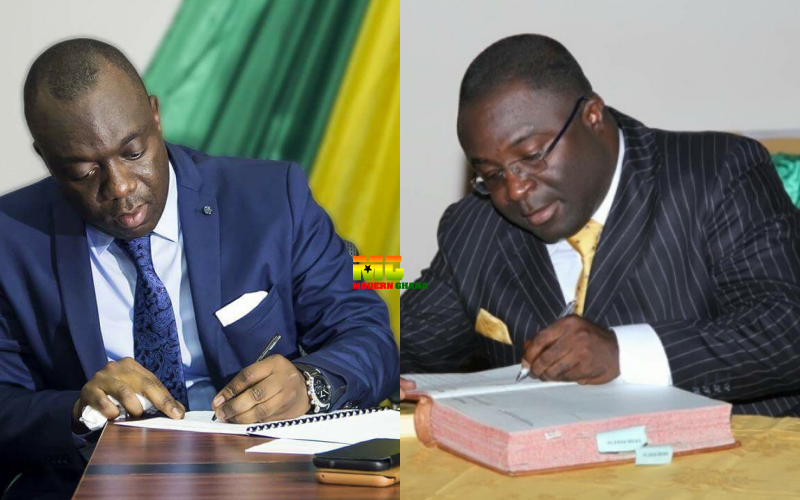Eugene Boakye Antwi, a prominent figure within the New Patriotic Party (NPP) and former Member of Parliament for Subin, has vehemently contested the notion that the party’s defeat in the 2024 general elections was a consequence of spiritual forces. He argues that attributing the loss to supernatural influences is a misguided approach that obscures the real political and economic factors that contributed to the NPP’s downfall. Antwi’s stance directly counters the perspective of NPP General Secretary Justine Kodua, who had previously linked the electoral defeat to spiritual realms. Antwi insists on a data-driven and analytical approach to understanding political outcomes, emphasizing that electoral fortunes are determined by tangible actions and policies rather than unseen forces. He posits that the seeds of defeat are sown long before election day, citing internal party issues and policy missteps as the primary drivers of the NPP’s loss.
Antwi’s central argument revolves around the idea that the NPP’s electoral fate was sealed well before the 2024 election year. He contends that the party began losing ground in 2022, due to a series of policy decisions that eroded public trust and support. He specifically points to the controversial domestic debt exchange program, which negatively impacted a significant portion of the population, including over 800,000 depositors. This program, aimed at restructuring the nation’s debt, generated widespread public discontent and likely contributed to the NPP’s declining popularity. Furthermore, Antwi highlights the banking sector cleanup, another policy initiative that, while arguably necessary, led to substantial job losses and further fueled public dissatisfaction.
The former MP underscores the palpable signs of public discontent that were evident in the lead-up to the elections. He cites public protests and the negative reception of presidential convoys as clear indicators of the electorate’s growing dissatisfaction with the NPP’s governance. These visible manifestations of public sentiment, Antwi argues, were not the result of spiritual forces but rather a direct consequence of policy choices that negatively impacted the lives of ordinary citizens. He firmly believes that attributing the electoral loss to spiritual factors is not only inaccurate but also prevents the party from engaging in a meaningful introspection of its own shortcomings and developing effective strategies for future elections.
Antwi’s critique of the “spiritual” explanation for the NPP’s defeat represents a broader call for a more pragmatic and evidence-based approach to political analysis within the party. He challenges the tendency to seek supernatural explanations for complex political phenomena, advocating instead for a thorough examination of the party’s policies, strategies, and internal dynamics. He emphasizes the importance of acknowledging and addressing the real-world issues that contribute to electoral outcomes, such as economic hardship, unemployment, and public dissatisfaction with government policies. This realistic assessment, he believes, is crucial for the NPP to regain public trust and rebuild its support base.
The debate within the NPP regarding the reasons for its 2024 electoral defeat highlights a fundamental tension between those who favor spiritual interpretations and those who advocate for a more grounded, analytical approach. While some party members, including General Secretary Kodua, have pointed to spiritual influences as contributing factors, others like Antwi believe that such explanations are a distraction from the real issues at hand. This divergence of opinions underscores the need for a thorough and honest internal review within the NPP to identify the root causes of the electoral setback and chart a more effective course for the future.
Antwi’s outspoken criticism of the spiritual explanation for the NPP’s defeat serves as a call for greater accountability and a more realistic assessment of the party’s performance. He argues that attributing the loss to supernatural forces not only prevents the party from learning from its mistakes but also perpetuates a culture of denial and hinders the development of effective strategies for future electoral success. His emphasis on data-driven analysis, policy evaluation, and public engagement reflects a broader movement within the party towards a more modern and pragmatic approach to politics. This shift in perspective could be crucial for the NPP’s ability to regain public trust, rebuild its support base, and effectively compete in future elections.


